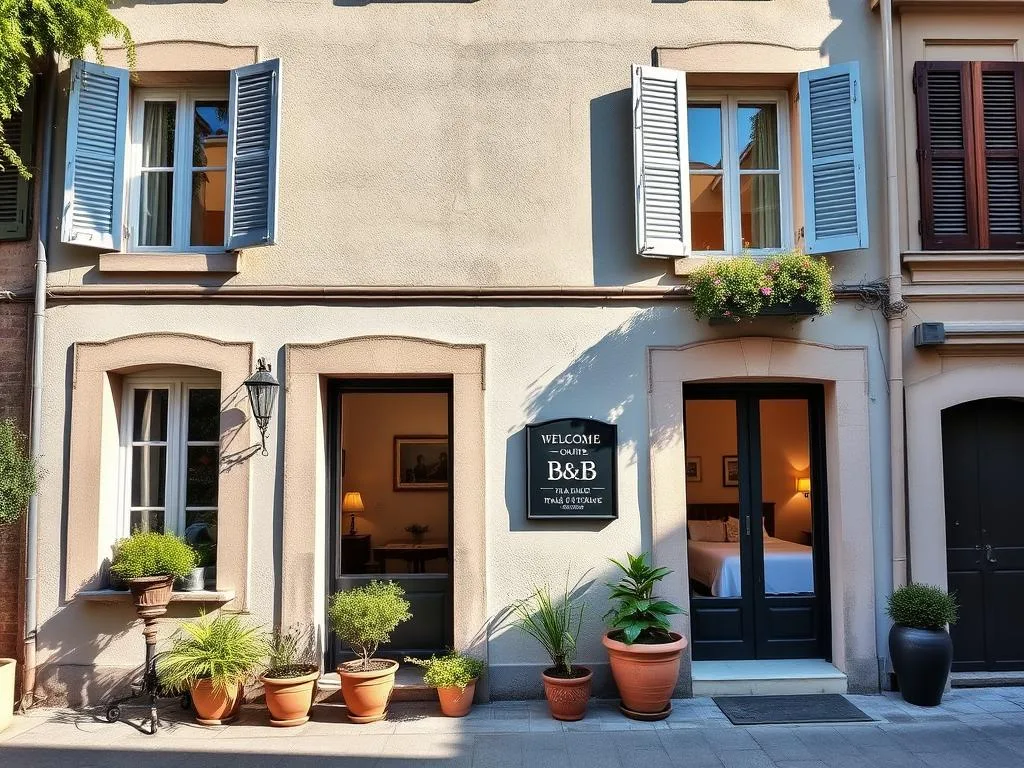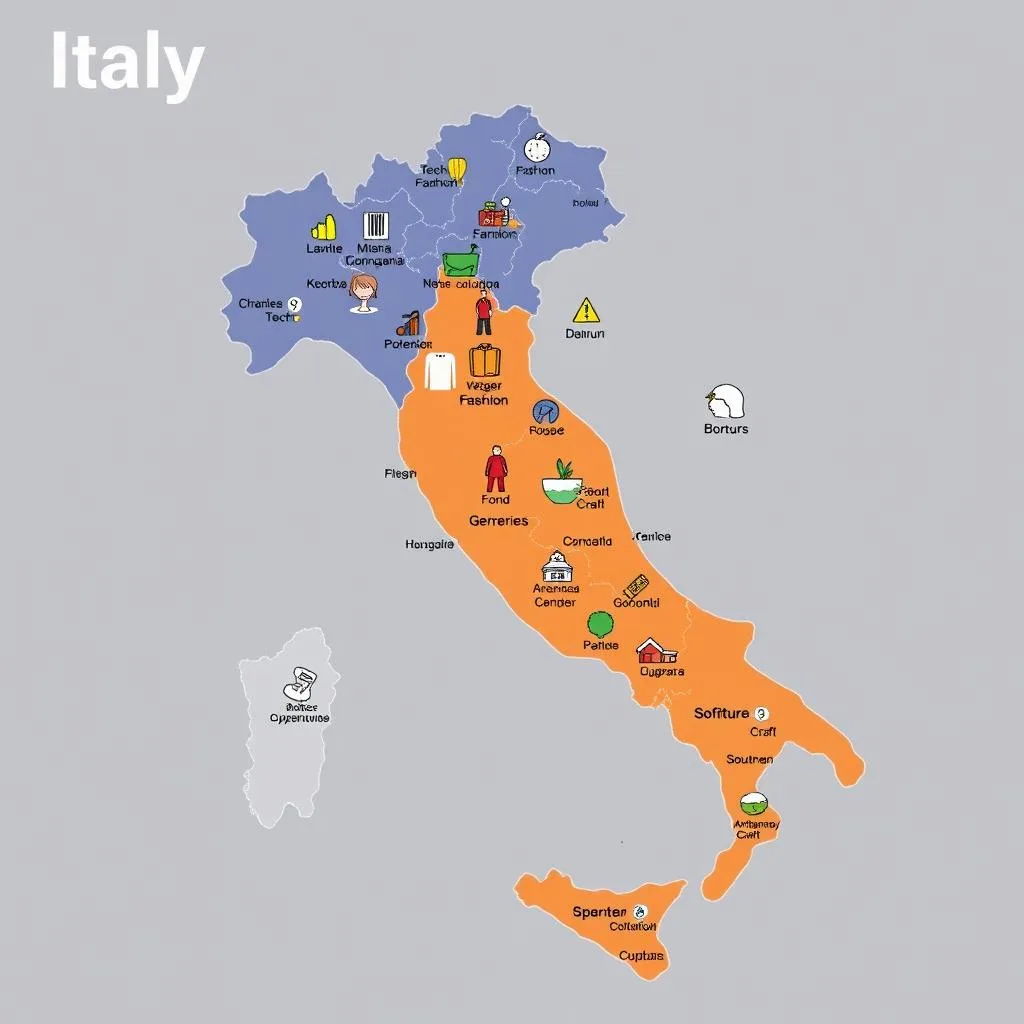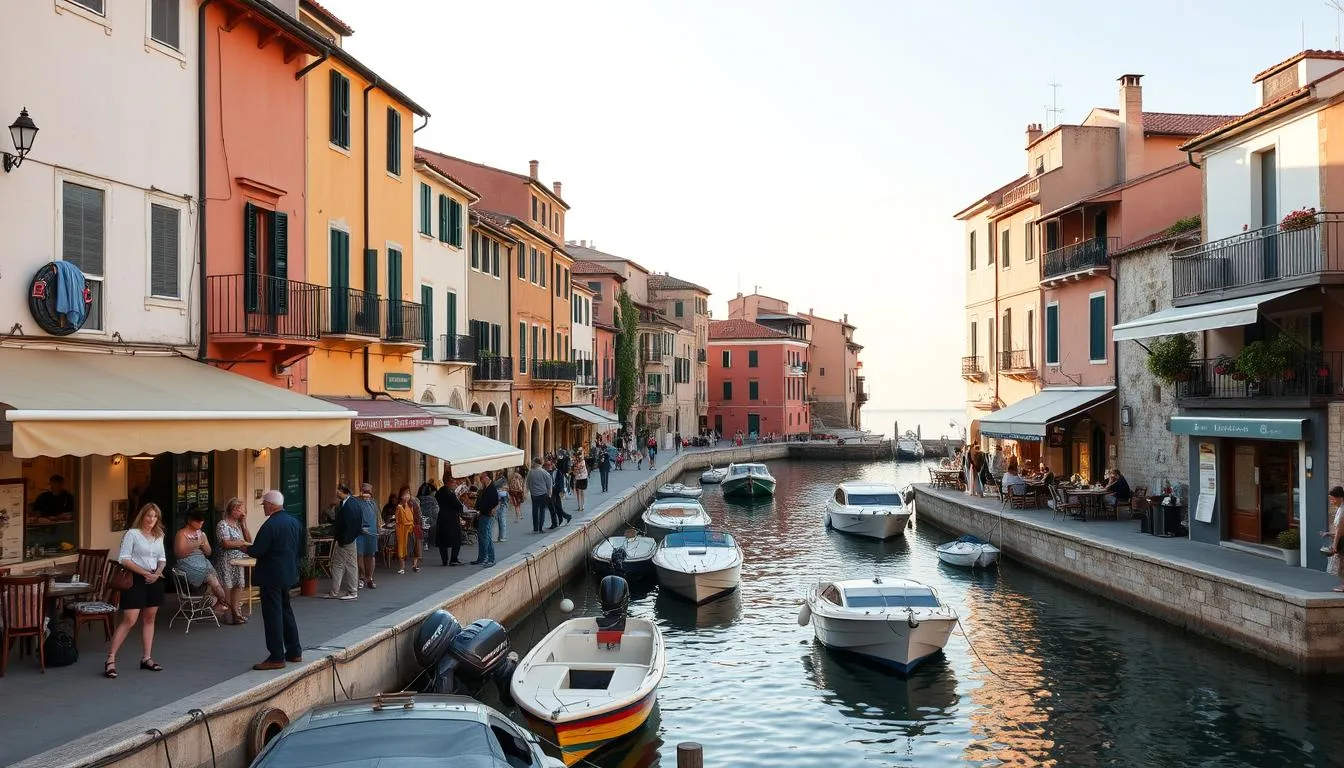Italy’s rich cultural heritage, thriving tourism industry, and strategic position within the European Union make it an attractive destination for foreign entrepreneurs. With its blend of traditional craftsmanship and modern innovation, Italy offers unique opportunities for those looking to establish small businesses in a country known for its appreciation of quality and artisanship.
This guide presents carefully selected small business ideas in Italy for foreigners based on three key criteria: profitability potential, legal accessibility for non-Italians, and cultural fit within the Italian market. Whether you’re drawn to Italy’s food scene, tourism industry, or digital economy, we’ll help you navigate the possibilities and challenges of entrepreneurship in this dynamic Mediterranean nation.
Business Ideas Comparison Table
Before diving into the details, let’s compare our top 10 small business ideas in Italy for foreigners across key factors that will influence your decision-making process:
| Business Idea | Startup Cost Range (€) | Legal Complexity | Cultural Adaptation Required | Profit Potential (1-5) |
| Food Tour Company | 5,000-15,000 | Medium | Yes | 4.5 |
| Vacation Rental Management | 3,000-10,000 | Medium | Yes | 4 |
| Digital Marketing Agency | 2,000-8,000 | Low | Yes | 4 |
| Artisanal Food E-commerce | 5,000-20,000 | Medium | Yes | 3.5 |
| Language School | 10,000-30,000 | Medium | No | 3.5 |
| Boutique B&B | 50,000-200,000 | High | Yes | 4 |
| Sustainable Fashion Brand | 15,000-50,000 | Medium | Yes | 3.5 |
| Tech Startup | 10,000-100,000 | Medium | No | 5 |
| Organic Skincare Production | 8,000-25,000 | Medium | No | 3.5 |
| Expat Consulting Services | 2,000-5,000 | Low | Yes | 3 |
1. Food Tour Company
What It Is
A food tour company offers guided culinary experiences that showcase Italy’s regional cuisines, traditional cooking methods, and local food producers. Tours typically include visits to markets, restaurants, wineries, and artisanal food shops, providing both tastings and cultural insights.
Why It Works in Italy
Italy’s world-renowned culinary heritage makes food tourism particularly lucrative. Each region boasts distinctive specialties that attract food enthusiasts from around the globe. The authentic farm-to-table culture and emphasis on quality ingredients create perfect conditions for immersive food experiences that tourists are willing to pay premium prices for.
Key Requirements
To start a food tour business in Italy, you’ll need:
- Tourism operator license (varies by region)
- Strong relationships with local food businesses
- Fluency in Italian and at least one other language
- Liability insurance for guests
- Deep knowledge of Italian culinary traditions

Pros
- Low initial investment compared to other tourism ventures
- Ability to scale with multiple tour types and locations
- Year-round demand in major cities
Cons
- Seasonal fluctuations in tourist destinations
- Requires extensive local knowledge and connections
- Competitive market in popular tourist areas
Success Story
Three friends from the UK launched “Italy Food Tours” in 2019, starting with walking food tours in Rome. Despite the pandemic challenges, they expanded to 24 cities across Italy within two years, generating €10,000 monthly through their focus on authentic experiences and word-of-mouth marketing.
2. Vacation Rental Management
What It Is
A vacation rental management business handles the operation of short-term rental properties on behalf of owners. Services typically include marketing properties, managing bookings, guest communications, cleaning, maintenance, and ensuring compliance with local regulations.
Why It Works in Italy
Italy’s position as a top global tourism destination creates consistent demand for vacation rentals. Many property owners (both Italian and foreign) need reliable management services, especially if they don’t live locally. The growth of platforms like Airbnb has expanded the market significantly, while recent regulations have increased the need for professional management.
Key Requirements
Essential elements for success include:
- Registration as a business entity (SRL is common)
- Knowledge of local tourism and short-term rental regulations
- Reliable network of cleaning and maintenance providers
- Multilingual communication skills
- Digital marketing expertise

Pros
- Recurring revenue model
- Scalable business with potential for expansion
- Can be started with minimal upfront investment
Cons
- 24/7 availability required for guest emergencies
- Seasonal fluctuations in some regions
- Increasing regulatory complexity
Success Story
Emma, an Australian entrepreneur, started “Tuscany Stay” in 2018 with just three properties in Florence. By focusing on premium service and targeting luxury travelers, she now manages over 30 properties across Tuscany, employing a team of 8 and generating substantial profits even during off-peak seasons.
3. Digital Marketing Agency
What It Is
A digital marketing agency provides online marketing services to businesses, helping them increase their visibility and attract customers. Services may include social media management, content creation, SEO, PPC advertising, email marketing, and website development.
Why It Works in Italy
Many Italian businesses, especially in traditional sectors, are still catching up with digital transformation. As a foreigner, you can leverage international experience and fresh perspectives to help Italian companies reach global markets. There’s particular demand for agencies that can bridge cultural gaps between Italian businesses and international audiences.
Key Requirements
To establish a successful digital marketing agency in Italy, you’ll need:
- Business registration (Partita IVA for freelancers or SRL for agencies)
- Portfolio of previous work
- Technical skills in relevant platforms and tools
- Understanding of Italian business culture
- Network of reliable freelancers for specialized tasks

Pros
- Low startup costs (primarily computer and software)
- Location flexibility (can work remotely)
- High profit margins on services
Cons
- Competitive market requiring specialization
- Need to continuously update skills
- Client acquisition can be challenging initially
Success Story
Francesco and Valerio founded “Loop,” a digital advertising agency specializing in Google Ads and Facebook Ads for Italian businesses. Starting small, they’ve grown to €35,000 monthly revenue with a 150% yearly increase, expanding their services to different markets and industries throughout Italy and beyond.
4. Artisanal Food E-commerce
What It Is
An artisanal food e-commerce business sources authentic Italian food products from small producers and sells them to international customers who seek genuine Italian ingredients and specialties that aren’t widely available outside Italy.
Why It Works in Italy
Italy’s reputation for exceptional food quality creates global demand for authentic products. Many small producers lack the resources or knowledge to reach international markets directly. By establishing relationships with these artisans and creating an e-commerce platform, you can bridge this gap while capitalizing on the worldwide appreciation for Italian cuisine.
Key Requirements
Essential elements for this business include:
- E-commerce platform and logistics infrastructure
- Network of reliable artisanal producers
- Knowledge of food export regulations
- Understanding of food preservation for shipping
- Digital marketing skills to reach target audiences

Pros
- Access to unique products with global appeal
- Subscription models create recurring revenue
- Potential for high margins on premium products
Cons
- Complex logistics for perishable items
- International shipping and customs challenges
- Need to compete with established specialty retailers
Success Story
Two Italian entrepreneurs launched “EatTiamo,” a subscription box service delivering authentic Italian delicacies to American families. Starting with a focus on quality and storytelling, they’ve grown to serve 300 customers monthly and aim to reach their break-even point of 1,000 monthly boxes, showcasing the potential of this business model.
5. Language School
What It Is
A language school offers instruction in various languages, with opportunities to focus on teaching your native language to Italians or teaching Italian to foreigners. Schools can offer group classes, private tutoring, business language training, and cultural immersion programs.
Why It Works in Italy
Italy attracts millions of international visitors and students annually, many seeking to learn Italian. Simultaneously, Italians increasingly need English and other languages for business and education. This dual market creates consistent demand for quality language instruction, particularly in tourist centers and business hubs.
Key Requirements
To establish a language school in Italy, you’ll need:
- Educational business license
- Qualified teachers (with TEFL/CELTA for English)
- Suitable teaching space
- Curriculum development expertise
- Marketing strategy targeting specific language learners

Pros
- Leverages your native language as a valuable skill
- Multiple revenue streams (group classes, private lessons, corporate training)
- Potential to expand into online teaching
Cons
- Requires physical space and equipment
- Staff management challenges
- Seasonal fluctuations in tourist areas
Success Story
Sarah, an American linguist, opened “Parla Italiano” in Florence in 2017. By combining traditional language instruction with cultural experiences like cooking classes and wine tastings, she created a unique immersion program that attracts students year-round. Her school now employs 12 teachers and has expanded to online courses reaching students worldwide.
6. Boutique B&B
What It Is
A boutique bed and breakfast offers personalized accommodation with distinctive character, typically in a restored historic building or property with unique architectural features. These establishments focus on creating memorable experiences through attention to detail, personalized service, and authentic local connections.
Why It Works in Italy
Italy’s abundance of historic buildings in desirable locations creates perfect opportunities for distinctive accommodations. Travelers increasingly seek authentic, personalized experiences rather than standardized hotels. A well-positioned boutique B&B can command premium rates while offering guests the chance to “live like a local” in historic settings.
Key Requirements
Essential elements for a successful boutique B&B include:
- Property in a desirable location
- Hospitality business license
- Compliance with safety and accessibility regulations
- Interior design that balances authenticity with comfort
- Digital marketing and presence on booking platforms

Pros
- Allows you to combine business with Italian lifestyle
- Potential for high profit margins in prime locations
- Property may appreciate in value over time
Cons
- High initial investment
- Complex regulations and permits
- Requires constant presence or reliable staff
Success Story
Michel and Claire, a French couple, purchased and renovated a 16th-century building in Tuscany to create “Casa Bella,” a six-room boutique B&B. By emphasizing authentic experiences—including olive oil tastings from their own grove and cooking classes with local chefs—they maintain 85% occupancy year-round with rates averaging €200 per night.
7. Sustainable Fashion Brand
What It Is
A sustainable fashion brand creates clothing and accessories using environmentally friendly materials and ethical production methods. In Italy, this can leverage the country’s renowned craftsmanship while addressing growing consumer demand for responsible fashion.
Why It Works in Italy
Italy’s heritage in textile production and fashion design provides an ideal foundation for sustainable fashion. The “Made in Italy” label carries premium value, while access to skilled artisans and quality materials enables the creation of high-end sustainable products. Florence, in particular, has become a hub for the slow fashion movement.
Key Requirements
To launch a sustainable fashion brand in Italy, you’ll need:
- Business registration (typically SRL)
- Relationships with ethical suppliers and manufacturers
- Design expertise or partnerships with designers
- E-commerce platform and/or retail strategy
- Sustainability certifications

Pros
- Growing market with conscious consumers
- Potential for premium pricing
- Alignment with personal values
Cons
- Higher production costs
- Complex supply chain management
- Need to educate consumers on value proposition
Success Story
Sophia, a Danish designer, launched “Verde Moda” in Florence, creating sustainable accessories using reclaimed leather from luxury fashion houses. By telling the story of each material’s origin and showcasing Italian craftsmanship, she’s built a brand that sells to conscious consumers worldwide through her e-commerce platform and select boutiques across Europe.
8. Tech Startup
What It Is
A tech startup in Italy develops innovative software, applications, or technology solutions. The Italian Startup Act provides special benefits for qualifying innovative startups, making this an attractive option for tech entrepreneurs.
Why It Works in Italy
Italy offers significant incentives for innovative startups, including tax breaks, simplified incorporation, flexible employment rules, and visa programs for non-EU founders. Cities like Milan, Rome, and Turin have growing tech ecosystems with incubators, accelerators, and access to talent from top technical universities.
Key Requirements
To establish a qualifying innovative startup in Italy, you’ll need:
- Incorporation as an eligible business entity (SRL, SpA, etc.)
- Registration in the special section of the Business Register
- Meeting innovation criteria (R&D investment, qualified staff, or intellectual property)
- Business plan demonstrating innovation and growth potential
- For non-EU founders, minimum €50,000 investment proof for startup visa

Pros
- Significant tax incentives and benefits
- Access to EU market and funding
- Highest profit potential among business options
Cons
- Higher initial investment requirements
- Complex qualification criteria
- Need for specialized technical expertise
Success Story
A team of Italian and international developers founded “Dreamonkey,” a software house specializing in web development and industrial IoT. By focusing on high-quality development and open-source contributions, they’ve grown from €90,000 to €300,000 in annual revenue with a consistent 50% yearly growth rate, expanding their client base across Europe.
9. Organic Skincare Production
What It Is
An organic skincare business develops and produces natural beauty products using Italy’s abundant botanical resources. Products can range from facial care to body treatments, all emphasizing natural ingredients and sustainable production methods.
Why It Works in Italy
Italy’s biodiversity provides access to exceptional natural ingredients like olive oil, citrus, herbs, and flowers. The country’s reputation for quality and beauty creates marketing advantages, while the “Made in Italy” label adds premium value. The growing global demand for natural skincare products makes this a promising export business.
Key Requirements
Essential elements for an organic skincare business include:
- Cosmetic product safety assessments and notifications
- Production facility meeting hygiene standards
- Formulation expertise (or partnership with cosmetic chemists)
- Sustainable packaging solutions
- Certifications for organic/natural claims

Pros
- Access to premium natural ingredients
- Strong export potential
- Scalable from small-batch to larger production
Cons
- Regulatory compliance complexity
- Need for specialized knowledge in formulation
- Shelf-life challenges with natural preservatives
Success Story
Maria, a Brazilian botanist, moved to Sicily and launched “Natura Siciliana,” creating organic skincare using local citrus, olive oil, and volcanic minerals. Starting with small-batch production, she now sells her products in luxury hotels across Italy and exports to specialty retailers in Northern Europe, highlighting the power of combining Italian ingredients with scientific expertise.
10. Expat Consulting Services
What It Is
An expat consulting business helps foreigners navigate the complexities of relocating to and establishing businesses in Italy. Services can include visa assistance, business registration support, property searches, cultural orientation, and language resources.
Why It Works in Italy
Italy’s bureaucratic processes can be challenging for foreigners to navigate, creating demand for knowledgeable guides. As an expat yourself, you’ll understand the pain points and needs of your target market firsthand. This business has low startup costs and can leverage your own experience and network.
Key Requirements
To start an expat consulting service, you’ll need:
- Business registration (often as a freelance consultant with Partita IVA)
- Thorough knowledge of Italian bureaucratic procedures
- Network of reliable professionals (lawyers, accountants, real estate agents)
- Strong intercultural communication skills
- Digital marketing strategy targeting potential expats

Pros
- Minimal startup investment required
- Leverages your own experience as an expat
- Can be started while working another job
Cons
- Need to stay current with changing regulations
- Potentially limited client base
- Seasonal fluctuations in demand
Success Story
James, a British expat who relocated to Rome in 2015, started “Italy Made Simple” after helping friends navigate visa processes. His blog grew into a consulting business that now serves dozens of clients monthly. By combining free content with premium services, he’s built a sustainable business that helps expats avoid the pitfalls he encountered when first moving to Italy.
Practical Tips for Foreign Entrepreneurs in Italy
Navigating Italian Bureaucracy

Italian bureaucracy can be challenging, but preparation helps:
- Hire a commercialista (accountant) familiar with foreign business owners
- Establish an Italian bank account early in the process
- Obtain a codice fiscale (tax code) before any business activities
- Budget extra time for all administrative processes
- Consider joining an expat business association for guidance
Regional Recommendations

Different regions offer distinct advantages:
- Lombardy (Milan): Tech startups, fashion, financial services
- Tuscany: Tourism, food/wine, artisanal products
- Lazio (Rome): Services for expats, language schools
- Veneto (Venice): Tourism, luxury goods, digital services
- Sicily/Puglia: Emerging tourism, organic agriculture
Resources for Foreign Entrepreneurs

Valuable resources to support your business journey:
- Invitalia – Government agency supporting business development
- Italian Trade Agency – Support for international trade
- Chambers of Commerce in major cities
- Expat business networks (e.g., InterNations Business Group)
- Italian Startup Visa program for non-EU entrepreneurs
Conclusion: Your Path to Entrepreneurship in Italy
Among the many small business ideas in Italy for foreigners, three stand out for their combination of low entry barriers and high reward potential:
Digital Marketing Agency
With minimal startup costs, location flexibility, and the ability to leverage your international perspective, this business offers an accessible entry point with substantial growth potential.
Food Tour Company
Combining Italy’s culinary heritage with tourism creates a business that’s both financially rewarding and deeply connected to Italian culture, with relatively low initial investment requirements.
Tech Startup
For those with technical expertise and access to capital, Italy’s supportive ecosystem for innovative startups offers significant incentives and the highest potential returns.
Whichever path you choose, success in Italy requires thorough research into visa requirements, business permits, and regional regulations. The journey of entrepreneurship in Italy combines challenges with extraordinary rewards—access to European markets, immersion in one of the world’s most beloved cultures, and the opportunity to build a business in a country where quality and craftsmanship are deeply valued.
Ready to Start Your Italian Business Journey?
Download our comprehensive guide to business visas, permits, and regional incentives for foreign entrepreneurs in Italy.









